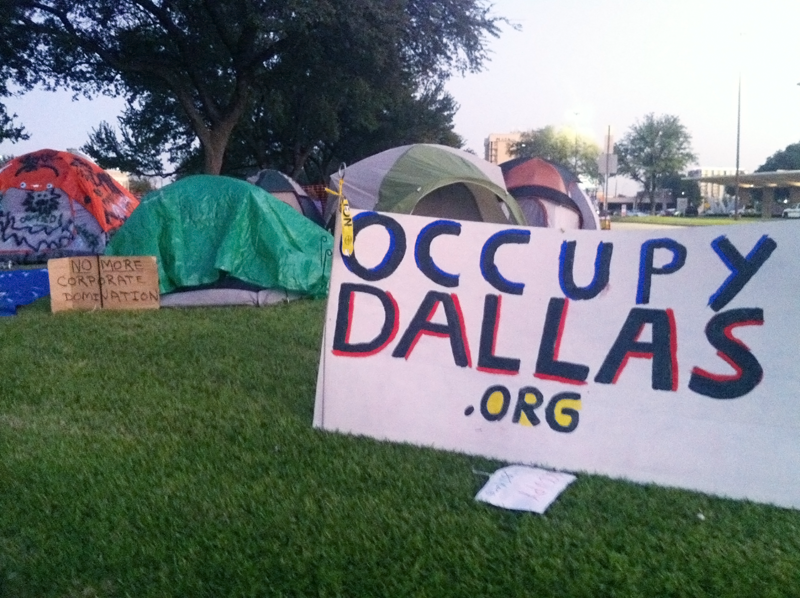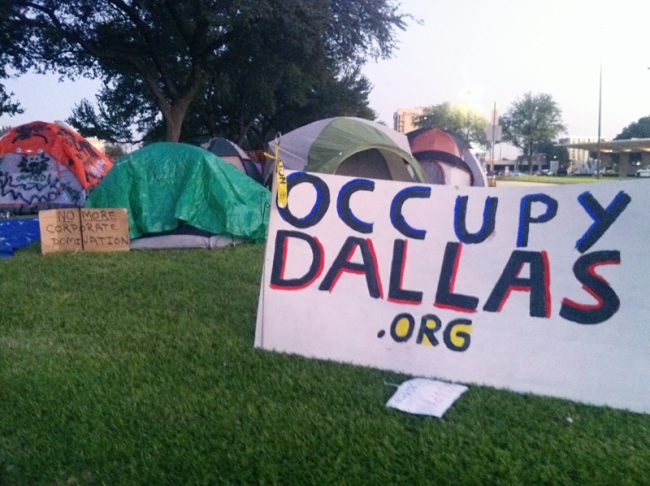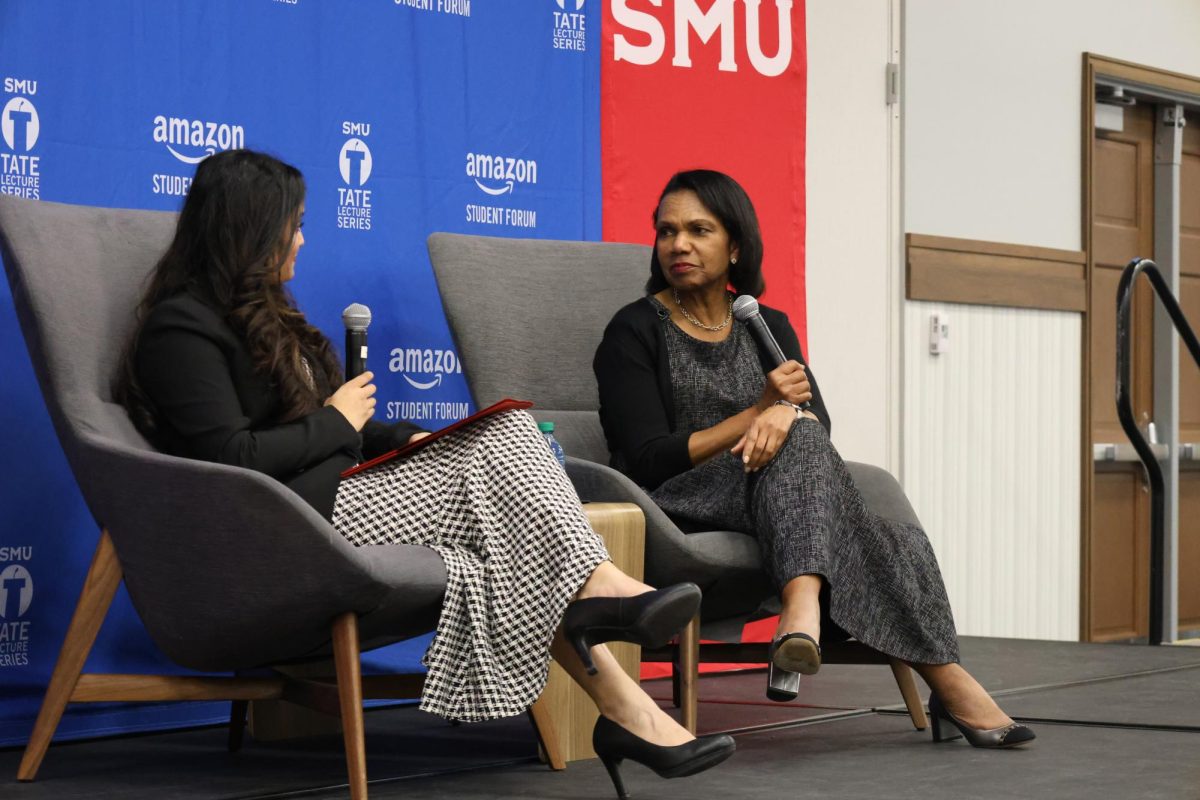
Occupy Dallas has been camped out since Oct. 6. After a disagreement with the city, they moved from their original site at Pioneer Plaza to their current site just southeast of City Hall. (Jessica Huseman/ The Daily Campus)
The “Occupy” movement has crept into cities across the United States, and so has the criticism that they have no uniform goal.
Occupy Dallas has not escaped this critique.
While the complaints of the protesters in Dallas vary, they all share a common theme: corporate greed and the silencing of regular Americans.
They also share a common timeline in that they don’t have one.
Cordell Cameron, who runs OccupyDallas.org and frequently blogs on the site, said he feels the criticism is unfounded.
“When people here can’t articulate a legitimate solution to the problems, they say ‘you are ignorant, you don’t know what you are doing out here and you are about nothing,'” he said.
“My point is that it’s not the people’s responsibility to do that, it’s the politician’s job. People should be expressing their grievances here and the politicians should be listening and coming up with solutions.”
But the criticisms of the movement go further than that.
With everyone at Occupy Dallas expressing different problems, some may say it would be difficult for politicians to know what to address.
“There no list of ‘you comply with this and we are happy,’ but there is the general idea that every voice needs to be heard, not just the rich,” Bobbi Johnson, who was at the protest with her husband, said.
Cameron agreed, and said a good step forward would be to revoke corporate personhood, which was established in Citizens United v. Federal Election commission ruling last year.
“Yes, we still have the right to vote, but the people we are voting for don’t care what we have to say because they are already bought and paid for,” Cameron said.
Other protesters echoed the idea that corporations had become too powerful and needed to be scaled back, but Cameron agreed that there were many who had other problems entirely.
While he authored a blog on the site called “Seriously…You don’t know why we’re here?,” which addressed the power of corporations, he acknowledged that was just his opinion.
“While there are many reasons people have come out, I just focused on the main one that is important to me, that corporations have hijacked our government,” he said.
Other protesters had different ideas entirely.
Some wanted the government to end entirely and advocated anarchy, others called for complete redistribution of wealth.
Robert Porter, an organizer of the event who has served in such roles as police liaison, said that it was easy to let those views crowd the overall message of the movement.
“It’s easy to focus on the ones that are nutty, because they are easy to pick out. But there is a bigger message here,” he said.
Porter said the bigger message was the mistreatment of the common person, but he, like the others, had no idea when that mistreatment would come to an end or what party would address it.
“It’s indefinite,” Ryan Lucas, a freelance photographer who had previously participated at Wall Street and in D.C., said.
“One day there will be change, but until then hopefully it gains momentum and more people come.”
Lucas said that even when corporate greed was fixed, the protests would go on.
“The whole Occupy movement is about everyone coming together, because the ship has 17 holes in it and it’s sinking,” he said. “It doesn’t matter if you fix one problem, because there are still 16 other ones that haven’t been addressed.”
The Occupy Dallas movement has a permit with the city that allows them to camp out until the middle of December.
Porter said he does not know whether or not the movement will try and renew the permit.
“It depends on the people who are there and how much chutzpah they’ve got,” he said.
Once the permit ends, the protesters have five days to renew it. Porter said he does not feel the city would decline the renewal.
“What the city wants, I think, is for us to just leave. Get tired, worn out, and leave. That way they don’t get any bad stories written about them or nasty pictures in the paper, and they still get to say they gave people the freedom of speech,” he said. “And if we fritter ourselves away, then we deserve it.”















